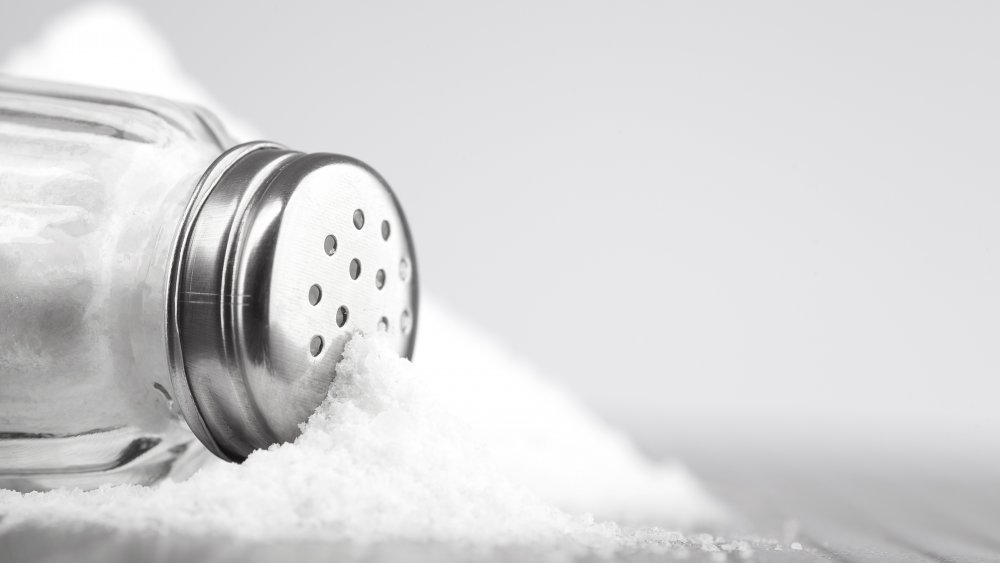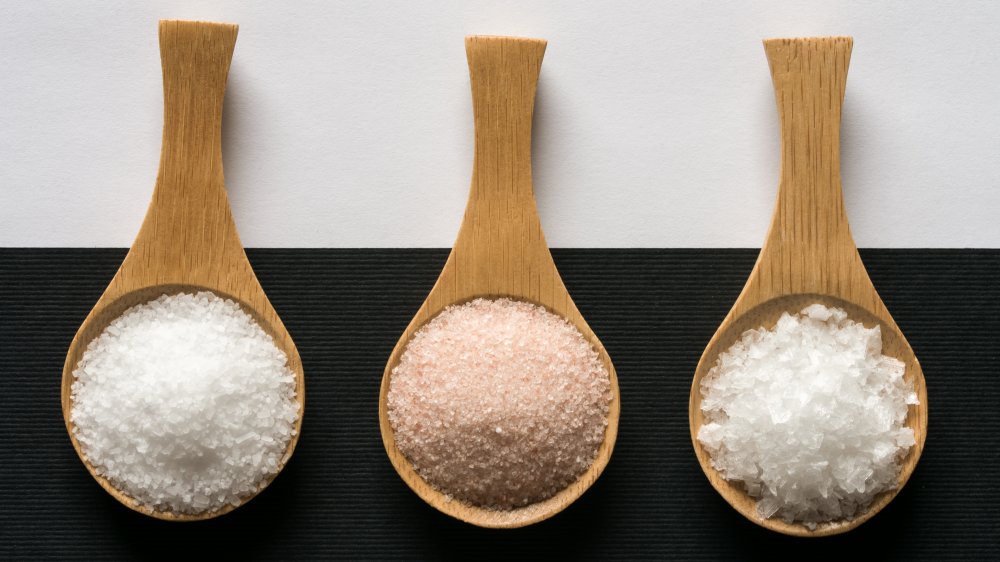This Is The Best Type Of Salt For Brining
If you've ever visited your grocery store or a local butcher to buy a beautiful cut of meat, then chances are you want to do right by it in the kitchen. For many cuts, that means you need to brine it to fully appreciate the cut and its flavor. The most basic of brines is a salt-water solution with the salt equalling five to eight percent by weight. Sometimes other ingredients are added in to flavor the meat too such as herbs or sugar (via The Kitchn). But the reason to brine is really less about the flavor than it is the overall finished product you'll have.
Brining helps the meat to absorb some of the liquid while it is soaking in the solution. Even though some of the liquid is cooked out, brining still helps produce juicier meat after cooking too. The salt in the solution works to dissolve muscle fibers and denature both the fibers and meat proteins too. The brine ultimately gives you more tender cooked meat that's less tough too. But to really accomplish all three of these goals, you need to use the right salt to properly work.
There are different considerations to take into account since all salt is not the same. Different salts are different sizes and have different shapes of crystals. Even the size of the crystals of the same kind of salt can be different, which is why salt should always be measured by weight instead of volume.
Use this salt when you're brining
There are five kinds of salt that work well for brining, and not one of them is table salt. The salts to pick up and keep on hand for brining include Diamond Crystal or Morton Salt Kosher salt, Light Grey Celtic Sea Salt, and Himalayan pink salt (via Foodsguy).
Coarse salt is best for brining, with Kosher salt being at the top of the list for its purity. The Diamond Crystal brand is a top pick for being precise and consistent in texture. The crystals are also large and not as salty, so you won't over-salt. The brand Morton Salt, however, has large flakes too. This means it will dissolve in water more quickly but are large enough to stick to meat in dry brines too.
Light Grey Celtic Sea Salt is also a good pick, per Foodsguy, because the brand has very high standards. However, it can be difficult to get the right amount of salt for brining because there is more moisture in the salt itself. Sea salt can also add its own flavor to the brine and is less pure.
Finally, Himalayan pink salt is another good choice, even though it also adds its own flavor and other nutrients to the meat like iron. Though the salt has its own distinct flavor, it also draws out the flavor of the meat well.
Looking for the best brine? Weigh salt rather than measuring it by volume. Stick to Kosher salt, but know that sea salt and Himalayan pink salt are good backup options.

